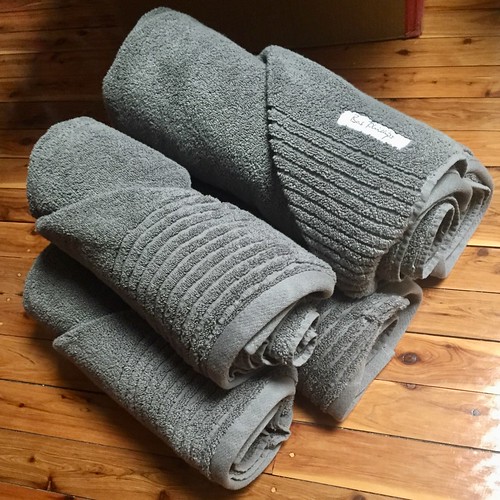The reflective task this week is to consider my typical weekly schedule and review/identify my “stress-combating” time and activities. Of course, my schedule in retirement is already far from the old “typical” – and in the current situation of Covid-19 lockdowns and restrictions, it doesn’t resemble much of anything recognisable.
Last term, my college commitment required three weekdays (Mon-Fri) of early starts, on a peak-hour train into the city. The 50-minute ride provided a useful block of time for revising anatomy theory, or playing on Facebook, or some recreational reading. The return journey was usually more study time, followed by television watching and probably a little work on college assignments. I would often travel into the city again on the Thursday afternoon, coinciding with the arrival of new books at Galaxy Bookshop and new comics and collectibles at Kings Comics. This left Fridays and the weekend free, so walking around the block had become a positive habit for exercise Thurs-Sun. One Friday afternoon/evening per month is dedicated to a meeting of my writing group. There probably should be some time set aside for housework each week, but this usually resembles turning old piles of books and papers into new piles, and definitely needs a more disciplined approach. I have recently cleared out a four-drawer filing cabinet and made room for new things to file.

This term should have resembled last term, but the Covid-19 lockdowns and restrictions has seen my college commitment reduced to a weekly online Zoom each Thursday morning. (All practical Clinic sessions will be compressed into next term, covering the required time of two terms once lockdown ends.) Without the predictable 50-minute train rides, it is harder to make time for study, but I have tried to use this blog’s scheduling facility to have a reflective piece written and uploaded each Friday evening. A disciplined way to keep up with the online readings and force myself to continue being reflective. The Mon-Wed part of the week can vanish in the blink of an eye. Once the television goes on, it’s quite easy to waste the entire day multitasking on mindless TV viewing and Facebook frittering. Travelling into the city has only been possible in recent weeks and I have ventured in only three times so far. New comics at Kings Comics have only just started being imported again and, as their new shop set-up has been delayed by the mandated Covid restrictions and the building codes on a newly renovated shop it its heritage status. Luckily, I have been able to organise packages to be posted out. Daily walks around the block are now possible, but as the days grow colder and more inclement with the arrival of winter, this schedule has also been shaky. One Friday evening per month is now dedicated to a Zoom meeting with my writing group, and this new way of meeting has been quite popular.
My usual stress-combating time and activities have lost effectiveness as the lockdown requirements through my term into havoc, but walking is definitely a useful distraction when I get frustrated. This year, I have also noticed that I rarely use my extensive library of movie soundtrack CDs as I would have, mainly due to a change in the way iTunes works on my computer. Any albums downloaded to my laptop have now vanished – supposedly they are “in the Cloud” but I have not been successful in retrieving them, and working out new ways to use Apple Music has just been put in the too-hard basket for now. Many of my old favourite CDs are still in storage. I find I have now fallen out of the habit of playing music, and a previously-hassle-free way of de-stressing is not stressful, so I ignore it. Going to the movies or live theatre have always been great for de-stressing, and both of these activities have been impossible in Covid-19 lockdown. The home theatre option is there, but not really different enough to normal TV-watching to have the desired effect. Eating out has only just returned.
The activity in the lecture notes then suggest to “set out your ideal professional week” and I find that almost impossible to imagine or contemplate at the moment. My retirement funding arrangements mean that, when fully qualified as a remedial massage therapist, I am restricted to only doing ten hours of paid work per week. Whether I will scatter times in short blocks across the week, or restrict the allotted time to certain days, I am really not sure. It will depend on the local clientele, and whether I can reorganise a part of the house into a reliable workspace for massage treatments. Continuing to rid the house of old clutter and finding new locations for books and collectibles that have never had a permanent location would be my biggest hurdle at the moment. A routine for regular work on that problem would help.
So how sustainable, realistic and achievable is my “Ideal Week”? Again, I find imagining the next term (and how two term’s of practical Clinic will merge into the one remaining term), and the subsequent setting up of my future home clinic, is already totally different to what I had imagined when creating my Business Plan assignment at the end of last year. Things that seemed readily achievable then are now less so. My retirement fund advisor has urged me to plan for only ten hours per week of employment, and not the twenty hours I was originally told. The new short-term goal has to be readying the house for the future renovation. I have already procrastinated too much during lockdown. After that goal is achieved, maybe then I can reevaluate my new “Ideal Week”.
As if 2020 isn’t weird enough already?
